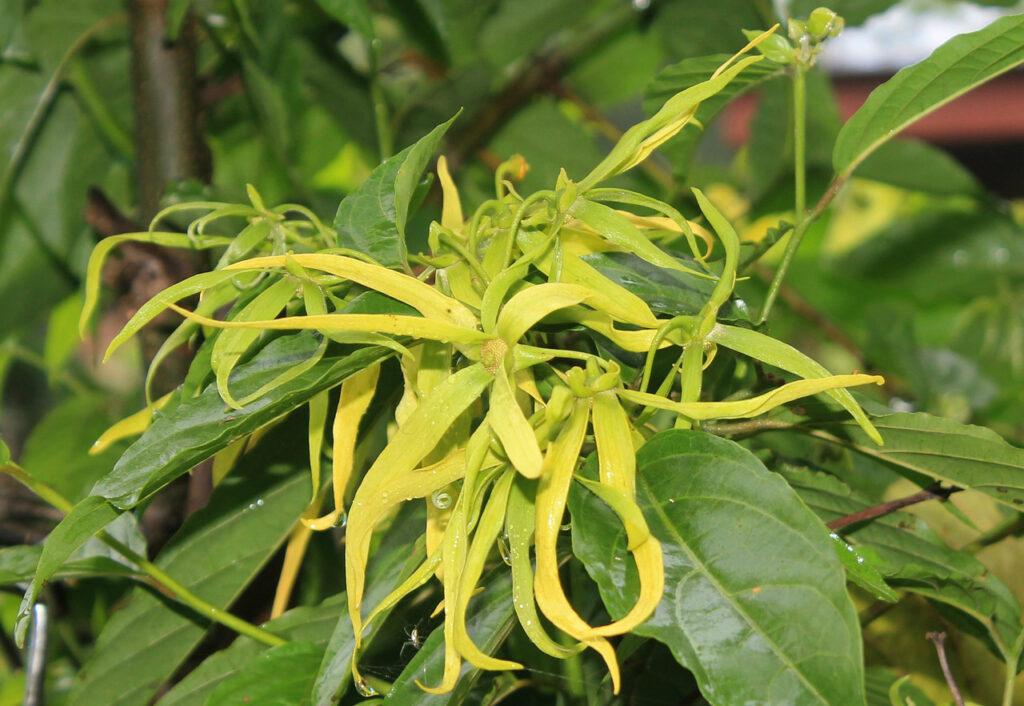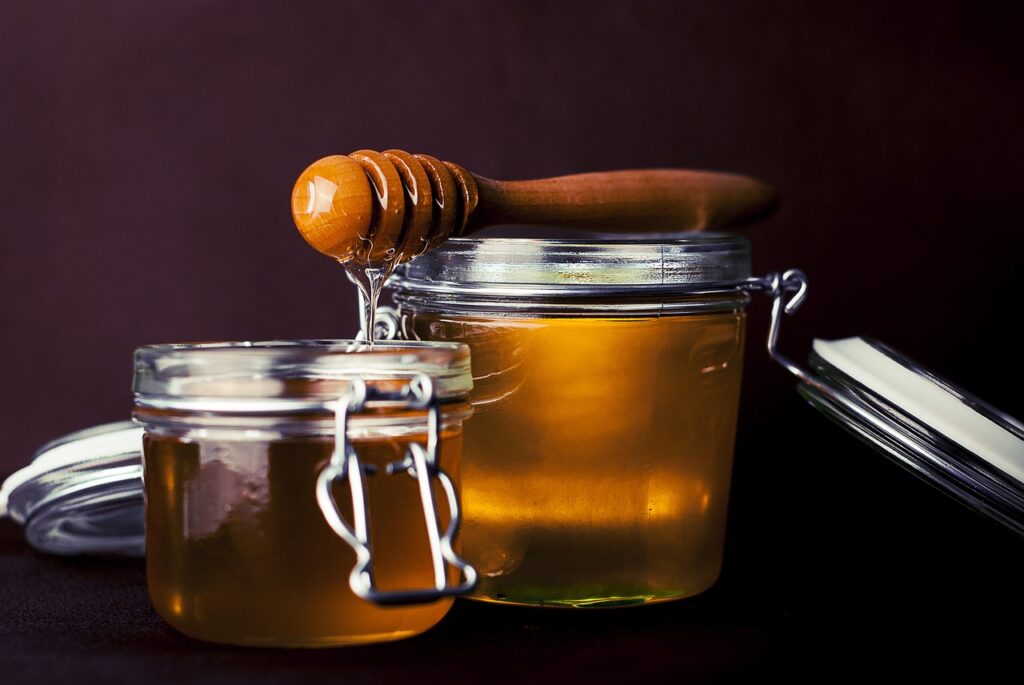Can You Use Neutralizing Shampoo on Natural Hair? Guide + 5 DIYs
Understanding the purpose and effects of neutralizing shampoo on hair is crucial, especially for those who use strong chemical hair relaxers. We especially think understanding these shampoos and how they work is important for those navigating the benefits of natural hair care.
- Neutralizing Shampoos: What They Are and How They Work
- The Benefits of Using Neutralizing Shampoo on Natural Hair
- How to Properly Use Neutralizing Shampoo
- Creating Your Own: 5 Natural Neutralizing DIY Rinses
- Additional Considerations for Natural Hair
- Alternatives to Neutralizing Shampoos
- Tips for Maintaining Healthy Natural Hair
- Neutralizing Shampoo and Rinse FAQs
- Is neutralizing shampoo recommended for use on natural hair?
- What are the effects of neutralizing shampoo on unprocessed hair?
- How often should neutralizing shampoo be used on natural hair?
- What alternatives to neutralizing shampoo can be used on natural hair?
- Can neutralizing shampoo be used on hair that has been dyed?
Neutralizing shampoos are typically used after chemical treatments like relaxers or perms. They help restore the natural pH balance of your hair. These treatments can subject your hair’s cuticles to damage. A neutralizing shampoo helps alleviate this by adjusting the hair back to its optimal, slightly acidic pH level.
When it comes to natural hair that hasn’t been altered by chemical treatments, you may be wondering if neutralizing shampoo has any benefit over normal shampoo. The answer is that it depends.
- Your hair thrives when its pH is maintained between 4.5 and 5.5. Introducing a neutralizing shampoo into your routine could be too harsh if your hair hasn’t been chemically processed, potentially leading to dryness or damage over time.
- If you’re inclined towards natural or DIY hair care solutions, it’s worth noting that there are gentle, natural alternatives to maintain your hair’s pH balance without resorting to conventional neutralizing shampoos.
Ingredients like apple cider vinegar or aloe vera can be part of homemade concoctions that support the hair’s natural acidity. This promotes cuticle health and overall hair integrity. We’ll share more on that in our DIY section below.
Neutralizing Shampoos: What They Are and How They Work
Neutralizing shampoos are specialized hair products that balance your hair’s pH level, especially after chemical treatments. They play an essential role in maintaining the health of your hair, ensuring that it remains strong, shiny, and resilient. Their higher acidity levels help to neutralize alkalizing chemical treatments.
How Do They Work?
Neutralizing shampoos are formulated to counteract the alkalinity of certain hair products like hair relaxers.
Since they contain acidic substances, they adjust your hair’s pH level back to a natural acidic state (4.5-5.5). This action aids in constricting the hair cuticles, which seal and protect the hair shaft, whereas alkaline treatments do the opposite.
Their Role Following Chemical Treatments
During chemical processes such as the relaxing process or after color treatments with hair dyes, the hair’s pH level becomes elevated. This can lead to scalp irritation and hair damage. Neutralizing shampoo serves as a final step in these treatments to restore the natural pH and minimize potential damage.
If you regularly get your hair treated in the abovementioned ways, we highly recommend using a neutralizing shampoo or rinse to return it to its normal pH. Don’t have a neutralizing shampoo? No problem. We prefer natural DIY solutions like apple cider vinegar.
Compared to Regular Shampoos
While your standard type of shampoo, which may include clarifying shampoo, conditioning shampoo, or moisturizing shampoos, cleanses your hair, a neutralizing shampoo is calibrated for more than just cleaning.
Unlike regular shampoo, neutralizing shampoo neutralizes any residual alkaline products left on your hair and scalp. It’s not typically used for daily maintenance but as a specific treatment after exposure to harsh chemicals.
By comparison, neutralizing shampoos have a pH of around 4.5-5.5, while normal shampoos have a pH of around 6-7.
The Benefits of Using Neutralizing Shampoo on Natural Hair
Neutralizing shampoos can significantly enhance your hair care routine by promoting healthier natural hair when used appropriately. When it comes to hair, it’s really all about balance. They promote pH balance, prevent damage, and cleanse the scalp of chemical residues while maintaining essential natural oils.
Restoring Natural pH Levels
As mentioned earlier, your hair and scalp thrive best at a natural pH range of 4.5 to 5.5. After undergoing treatments with sodium hydroxide or other alkaline substances (often with a pH of 11 or higher), a neutralizing shampoo can help restore an optimum pH.
Preventing Hair Breakage
When your hair’s pH is too high, the cuticle layer swells, leading to hair breakage. By using a neutralizing shampoo, you work towards aligning your hair’s pH to a level that supports hair strength and resilience against breakage.
To further protect your hair, you may opt for leave-in deep conditioners that reinforce the hair’s natural defense system, especially if you’re transitioning from chemically treated to natural hair.
Removing Chemical Residue
After chemical processing, traces of relaxer residue and chemical residues can linger in your hair. This can possibly lead to scalp irritation and hair damage.
A neutralizing shampoo effectively removes (or neutralizes) these harmful toxins and any bad chemicals, reducing the chances of developing brittle hair. Perhaps the most simple step following a neutralizing rinse or wash is to ensure you’ve rinsed thoroughly, followed by a nourishing conditioner.
How to Properly Use Neutralizing Shampoo
When using neutralizing shampoo on natural hair, be sure to read and follow the instructions on the label to ensure you get the full neutralizing effect.
Step-by-Step Application
To ensure the health of your natural hair after a relaxer treatment, follow these steps:
- Apply the neutralizing shampoo: After rinsing out the relaxer with water, apply the neutralizing shampoo to your hair. Distribute it evenly to cover all strands thoroughly.
- Check for the final step: Some products offer a color-change mechanism indicating when the hair is free of relaxer residue. Lather and rinse until this final cue is observed.
- Rinse thoroughly: Rinse your hair with lukewarm water multiple times until the water runs clear, ensuring all residues are completely washed out.
Frequency of Use
- Neutralizing shampoo should be used immediately following a chemical relaxer treatment to restore the natural pH balance of your hair.
- For maintaining hair health, using a neutralizing shampoo or rinse regularly is not advised, as it can be too harsh for frequent use. Integrate it into your hair care routine following chemical treatments.
Choosing the Right Product
- When selecting a neutralizing shampoo, look for the ones specifically formulated for your hair type and texture. Visit your local beauty supply store to see what’s available if you’re looking for a store-bought neutralizing shampoo.
- You can also look for shampoos with a chelating agent to ensure effective removal of minerals, metals, dirt, and chemical residues. Avoid products with harsh ingredients that can strip your hair of its natural moisture.
Creating Your Own: 5 Natural Neutralizing DIY Rinses
If you’re exploring ways to balance your hair’s pH after a chemical process or to maintain its health, why not use a natural DIY method that avoids the use of shampoos that are full of chemicals?
1.) Coffee Rinse:
- Brew a strong pot of coffee and let it cool to room temperature.
- Shampoo your hair as usual, then pour the cooled coffee over your hair and scalp.
- Gently massage the coffee into your hair, making sure to cover all strands.
- Let it sit for 5-10 minutes, then rinse thoroughly with cool water.
Coffee contains antioxidants and caffeine that are beneficial for the scalp and hair. The acidic nature of coffee can also help to balance the hair’s pH after alkaline treatments, closing the hair cuticles and reducing frizz.
2.) Apple Cider Vinegar Rinse:
- Mix 2-4 tablespoons of raw, unfiltered apple cider vinegar with 1 cup of water.
- After shampooing your hair, pour this solution over your scalp and hair.
- Gently massage the mixture into your hair and scalp.
- Leave it on for 3-5 minutes, then rinse thoroughly with cool water.
Apple cider vinegar is acidic (pH of 2-3) and closer to the pH of hair when diluted with water. This makes it extremely effective as a neutralizer after alkaline treatments. If the smell is a bit too strong for you, add some sandalwood, lavender, or other essential oil to mask the scent.
3.) Lemon Juice Cleanser:
- Squeeze the juice of one lemon into 1-2 cups of water.
- After shampooing your hair, pour the lemon water over your hair and scalp.
- Gently massage the mixture into your hair, focusing on the roots and ends.
- Let it sit for 2-3 minutes to break down any residue and balance pH.
- Rinse well with cool water.
Lemon juice has a low pH of around 2-3. It also contains citric acid, which can help to remove product buildup and restore shine to the hair.
4.) Aloe Vera Rinse:
- Blend 1/2 cup of fresh aloe vera gel with 1 cup of water until smooth.
- Apply the mixture to your hair and scalp after shampooing.
- Gently massage it into your hair, ensuring even coverage.
- Leave it on for 5-7 minutes, then rinse thoroughly with cool water.
Aloe vera has a pH level similar to that of healthy hair at around 4.5-5.5, making it an effective neutralizer. It also contains enzymes and vitamins that can help to soothe the scalp, reduce inflammation, and nourish the hair.
Also, feel free to use a few drops of essential oil for added scent. We especially like using lemongrass with aloe due to its efficacy with dandruff.
5.) Herbal Rinse (Rosemary, Thyme, or Lavender):
- Steep 2-3 tablespoons of dried herbs in 2 cups of boiling water for 15-20 minutes.
- Strain the herbs and let the infusion cool to room temperature.
- After shampooing, pour the herbal rinse over your hair and scalp.
- Gently massage it into your hair, focusing on the roots and ends.
- Let it sit for 5-10 minutes, then rinse thoroughly with cool water.
Herbal rinses are fantastic to use in the hair. Herbs like rosemary have been demonstrated to be highly beneficial for the hair and scalp. Since the properties of herbs vary widely, you could double-check the pH of the rinse with a pH test strip before using it.
You’ll want the pH to be around 4-5.5 and definitely not over 6. Add a bit of vinegar to lower the pH as needed.
As mentioned previously, neutralizing your hair is primarily done after a chemical treatment or as part of a normal clarifying haircare routine to get pH levels back in balance. That said, these strategies shouldn’t be done on a daily basis. We recommend using a neutralizing rinse once every week or two.
These natural DIY methods are extremely effective and negate any need for store-bought alternatives. They are not only cost-effective but also a gentle alternative to traditional neutralizing shampoos. Of course, don’t forget to use natural conditioners and moisturizers to nourish your hair.
Additional Considerations for Natural Hair
We all have different hair and skin types, and that’s a factor when considering how to maintain the hair’s health and beauty. This is especially true if you do choose to use a store-bought clarifying shampoo and don’t opt for one of the DIY methods mentioned above.
Understanding Hair Types and Textures
Your natural hair’s texture significantly influences how hair care products affect your hair.
Curly hair can be more prone to dryness, while straight hair might have a different reaction to products.
Knowing your hair type, whether it’s 1A (straight) to 4C (tightly coiled), helps you choose the correct neutralizing shampoo that won’t disrupt your hair’s pH level or strip away natural oils.
The Importance of Moisturization
Natural hair thrives on moisture.
After using a neutralizing shampoo, especially post-relaxer, to address high alkalinity, it’s imperative to reintroduce moisture. Products infused with acidic ingredients, like coconut oil, help to seal the hair cuticle and preserve moisture.
Implementing deep conditioners in your hair care routine can combat the potential dryness associated with the deep cleansing action of neutralizing shampoos.
Avoiding Over-Processing
To stay safe, avoid overusing harsh chemicals like lye relaxers, which can damage your hair. We also generally recommend limiting the use of high-pH products to avoid lifting the hair cuticle, which makes it susceptible to breakage.
Instead, opt for gentler methods or DIY solutions to reduce the risk.
If you’re experiencing a dry scalp, consider homemade mixes that include natural, acidic components to balance the scalp’s pH. Then, follow that up with a hair conditioner or moisturizing regimen.
Alternatives to Neutralizing Shampoos
When exploring options beyond neutralizing shampoos, consider alternatives that maintain the natural pH balance of your hair while effectively removing product residues and impurities without harsh chemicals.
Compared with Clarifying Shampoos
Clarifying shampoos offer a deep cleansing experience by effectively removing buildup from product residues, such as hairspray and gels, as well as environmental pollutants.
They differ from neutralizing shampoos in that they are not designed to correct the pH balance but rather to cleanse the hair thoroughly. However, their deep cleaning properties may cause them to strip natural oils if used too frequently.
The Role of Chelating Shampoos
Chelating shampoos are an excellent alternative for those dealing with hard water, which contains minerals that can cling to your hair.
These shampoos contain chelating agents that bind with the minerals in the water, such as sodium chloride, and remove them from the hair.
They are gentler than clarifying shampoos but more specific in targeting the problems caused by hard water without disturbing the natural pH levels of your hair.
Low pH and Conditioning Shampoos
Alternatives like low-pH and conditioning shampoos can also help maintain the hair’s pH.
These shampoos are typically formulated with natural ingredients and are less likely to cause adverse reactions in your hair. Conditioning shampoos, in particular, can provide both cleaning and moisturizing benefits, aiding in managing the hair’s pH level while keeping it smooth and hydrated.
Tips for Maintaining Healthy Natural Hair
Incorporating a regular hair care routine, avoiding harsh chemicals, and using home remedies can be transformative. Here are ways to keep your hair looking and feeling its best.
Regular Hair Care Routine
Establishing a consistent hair care routine is crucial to keeping natural hair healthy. This includes gentle cleansing, timely moisturizing, and regular deep conditioning.
Deep conditioning, specifically, helps maintain natural oils, which are necessary for hair strength and vitality.
- Weekly Deep Conditioning: Use natural ingredients like coconut oil or honey for a DIY mask.
- Daily Moisturizing: Hydrate with leave-in conditioners to prevent dryness.
Avoiding Harsh Chemicals
Healthy hair flourishes when you minimize the use of damaging substances. Limit exposure to harsh chemicals in some hair sprays and other styling products, which can lead to product buildup and strip your hair of its natural oils.
- Select Hair Products Wisely: Look for products with nourishing natural ingredients.
- Limit Use of Styling Agents: Restrict the regular use of heavy products to avoid buildup.
- Opt for DIY Only: This is our favorite strategy for shifting to a natural, chemical-free hair routine. It’s a lifestyle change, but an important one.
Home Remedies and Natural Treatments
Harness the power of home remedies and natural treatments to boost hair health. These alternatives can be gentler and just as effective without exposing your hair to harmful toxins.
- Oil Treatments: Warm oils like olive or coconut can be applied to your scalp and hair for moisture.
- DIY Masks: Create masks using items like avocado, eggs, or banana to nourish and repair hair.
Neutralizing Shampoo and Rinse FAQs
Is neutralizing shampoo recommended for use on natural hair?
Specifically, neutralizing shampoos are designed to correct the pH balance of hair and are often recommended post-chemical treatments.
If your natural hair has not undergone chemical treatment, using a neutralizing shampoo is not typically necessary, as your pH balance should be naturally regulated.
That said, we recommend the natural DIY methods that use apple cider vinegar, coffee, lemon juice, or the other options mentioned (aloe and herbal rinses) as part of a normal clarifying hair care routine.
What are the effects of neutralizing shampoo on unprocessed hair?
Using neutralizing shampoo on virgin or unprocessed hair may lead to over-drying if used frequently since the formulation adjusts pH levels that don’t need adjusting in untreated hair. It’s essential to condition well after use to maintain moisture.
How often should neutralizing shampoo be used on natural hair?
We don’t recommend using a naturalizing shampoo when better natural options are available, like apple cider vinegar (ACV).
For general maintenance, occasional use of a neutralizing shampoo may be beneficial to remove buildup, but the same would be true of ACV, lemon juice, coffee, etc. So, why purchase shampoo when you can use it instead?
What alternatives to neutralizing shampoo can be used on natural hair?
For natural hair, gentle shampoos with natural ingredients or DIY cleansers can effectively cleanse the hair without altering pH levels. Clarifying shampoos or apple cider vinegar rinses are good alternatives for periodic deep cleansing.
Can neutralizing shampoo be used on hair that has been dyed?
Neutralizing shampoos can be used on dyed hair but with caution. Since dyed hair may already be vulnerable to dryness, it’s important to follow it with a deep conditioning treatment to restore moisture.


